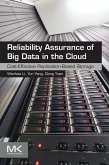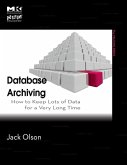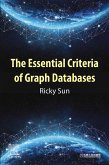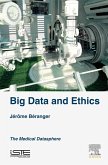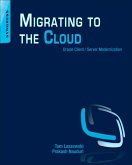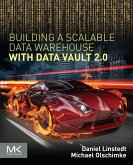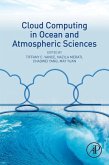* A comprehensive, critical exploration of statistics-based attempts to make sense of Web Mining.
* Details the special challenges associated with analyzing unstructured and semi-structured data.
* Looks at how classical Information Retrieval techniques have been modified for use with Web data.
* Focuses on today's dominant learning methods: clustering and classification, hyperlink analysis, and supervised and semi-supervised learning.
* Analyzes current applications for resource discovery and social network analysis.
* An excellent way to introduce students to especially vital applications of data mining and machine learning technology.
Dieser Download kann aus rechtlichen Gründen nur mit Rechnungsadresse in A, B, BG, CY, CZ, D, DK, EW, E, FIN, F, GR, HR, H, IRL, I, LT, L, LR, M, NL, PL, P, R, S, SLO, SK ausgeliefert werden.
"The treatment is systematic, comprehensive and in-depth, yet very lucid and accessible to a wide range of Web technology developers. The author's insights and depth of knowledge as on of the pioneering researchers on hypertext information mining and retrieval are also evident in the extensive and useful bibliographic notes provided at the end of each chapter..." - Professor Joydeep Ghosh, University of Texas, Austin
"The author has done the community a great service by synthesizing all the important work in this field into an excellent book, which introduces fairly sophisticated material in an easy-to-read manner. This book for the first time, makes it possible to offer Web Mining as a real course." - Professor Jaideep Srivastava, University of Minnesota
" Mining the Web: Discovering Knowledge from Hypertext from Hypertext Data, by Soumen Chakrabarti, focuses extensively on building a better search engine crawler...Chakrabarti's book begins with a discussion of search engine crawlers in a chapter titled "Crawling the Web." The discussion in this chapter is technical and detailed. Readers learn about features such as the robots.txt file that can be written in a certain way to stop crawlers from visiting a page...The most interesting part of the book is perhaps Chapter 7, "Social Network Analysis." In this chapter, the author presents the most famous search engine algorithms (e.g., PageRank, HITS, SALSA)." - Journal of Marketing Research, Sandeep Krishnamurthy
"All in all this is an excellent book. I enjoyed the book and highly recommend it as a textbook for web data mining classes at graduate or senior undergraduate levels. Chakrabarti has a rich vocabulary and is a gifted writer. I bet he will write new, good books in the future, and he should. I look forward to them." - Fazli Can - Miami University



